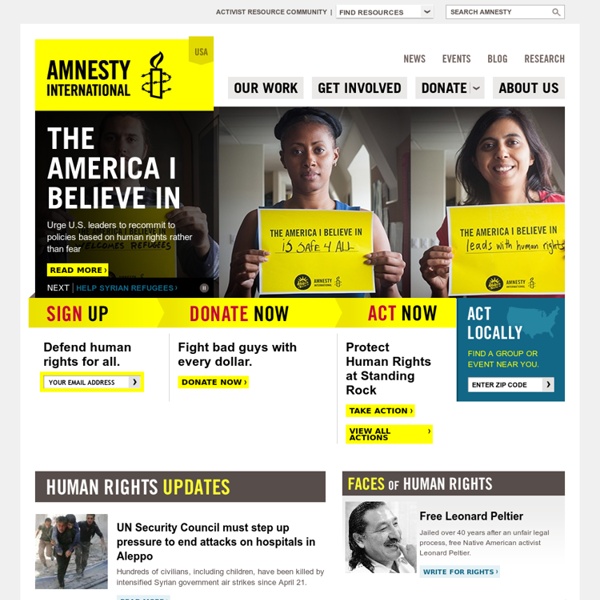



American Civil Liberties Union | PhotOH! Money that speaks for the 99% PhotOH! Money that speaks for the 99% · Monday, October 17th, 2011 at 12:35 pm You can see more money that speaks for the 99% here, at Occupy George. Brilliant: H/t: @katewarren Speaking of Political Carnival, it's fundrasing time again: If we are one thing here at TPC, it's being up front. 2012 will be a hugely busy (election) year, and we intend to dedicate all of our time to bringing you the latest breaking news (and humor, snarkitude, videos, commentary)... which means not having to worry about basic things like heat and food, what with Mr. You can donate at any time by using the PayPal donate button in the sidebar, or if you need a snail mail addy, feel free to email thepolicalcarnival@gmail.com. In addition, if anyone wants to sponsor us for three months with an ad in the sidebar, please email Paddy. Without donations, we have no Political Carnival. Please, though, never forget that we truly appreciate you guys with or without the donations.
Digital Democracy | Empowering Civic Engagement Through Digital HUMOR: Chicken Philosophy WHY DID THE CHICKEN CROSS THE ROAD??? Plato: For the greater good. Aristotle: To fulfill its nature on the other side. Karl Marx: It was a historical inevitability. Machiavelli: So that its subjects will view it with admiration, as a chicken which has the daring and courage to boldly cross the road, but also with fear, for whom among them has the strength to contend with such a paragon of avian virtue? This page was created by David Saum.
The Pixel Project 10 Best Photos From This Summer's Most Scantily Clad Movement An unwitting officer in Toronto “helpfully” advised women that, to not be raped, they should “avoid dressing like sluts.” His stupid comment inspired people in Toronto, Boston, Chicago, Sydney, and many more cities to organize SlutWalks, a series of marches based on the idea that sluts don’t cause rape, rapists do. Here are some of the best photos so far: Photo found on Moxiebird.com. April 3, 2011, Toronto, ON. Photo by Michael Courier. Photo by Daniel. Photo by Stephanie Vaughn. Photo by Anton Bielousov. Photo by Gracie Hagen. Photo by Laura Kehoe. Photo by Garry Knight. Photo by Rachel Freundt. Attend your local SlutWalk and tell the world we won’t let victims take the blame anymore. Found on Flickr accounts and blogs of fearless activists everywhere.
AmnestyInternational (amnesty) Book-A-Minute Classics Got another book report to do? English teachers have the inconsiderate habit of assigning mammoth-sized works of literature to read and then actually expecting you to do it. This wouldn't be so bad except that invariably the requisite reading is as boring as fly fishing in an empty lake. Half of those books don't even have discernible plots. "That's nice," you say, "but I don't believe you." Latest additions: 4/6/12 Little Women by Louisa May Alcott. And, on Book-A-Minute SF/F... If you liked Book-A-Minute Classics, try our other Book-A-Minute pages: And try our companion site: RinkWorks Book-A-Minute Classics is a RinkWorks production. Talk Back Talk to us! Legalese Titles and trademarks are the property of their owners.
Rethink Afghanistan War Programming, Motherfucker